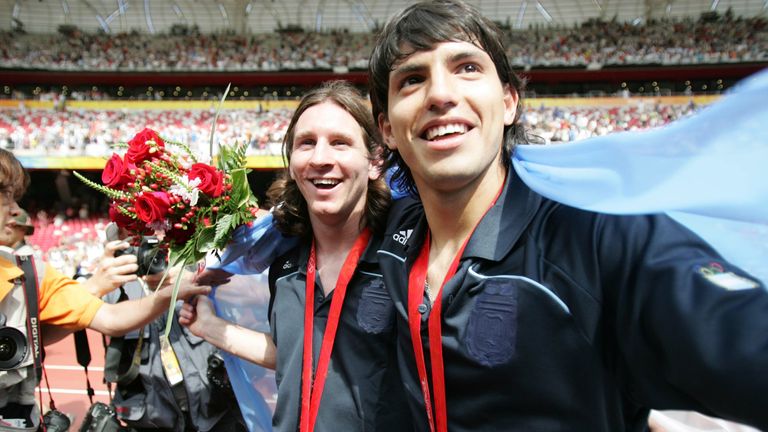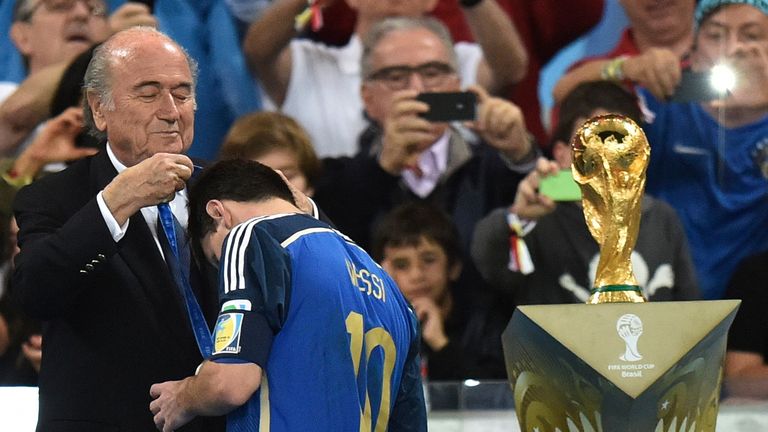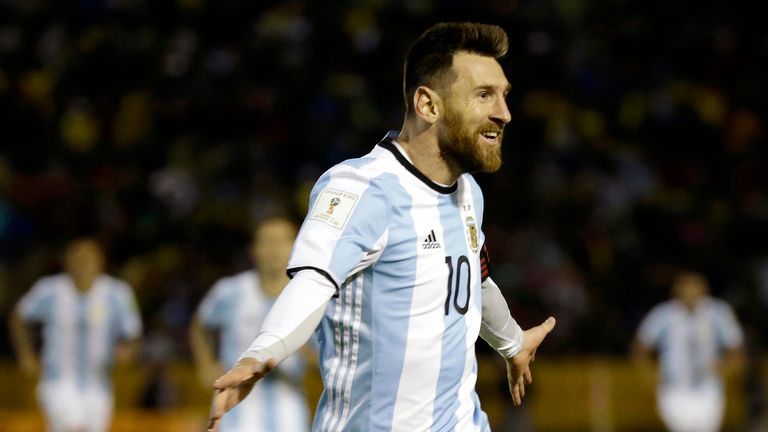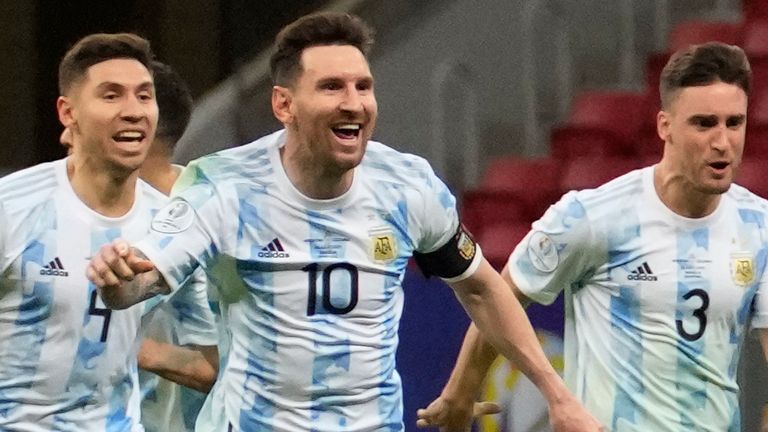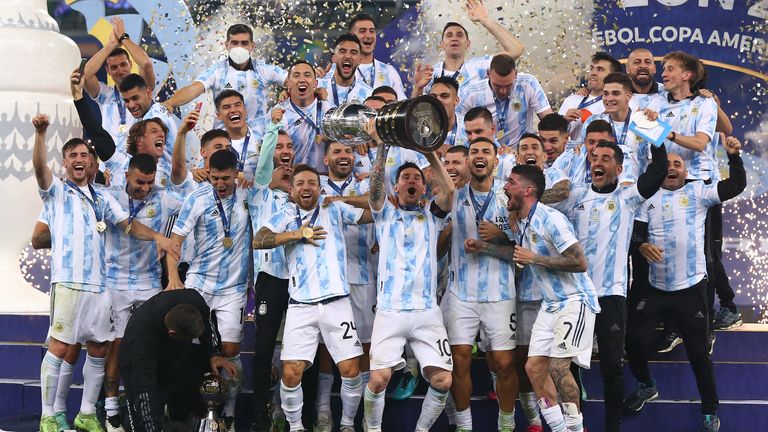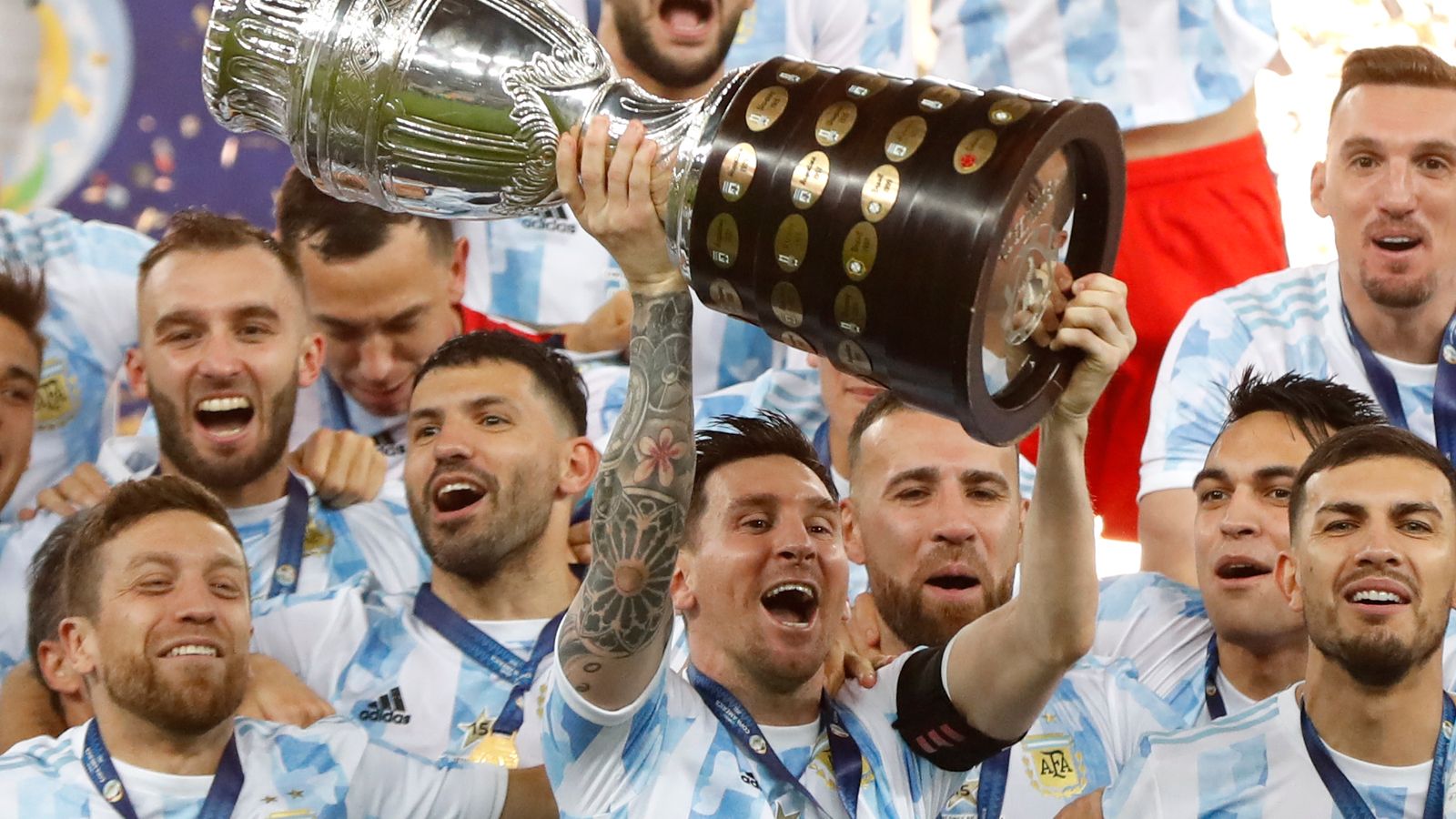
As Lionel Messi prepares for what he says may be his last World Cup, we look at the highs and lows of his Argentina career…
Sent off on debut
By the time Messi made his Argentina debut, the hype around this exciting teenage talent was surging. After opting for Argentina over Spain, he had shone for the U20s, scoring twice in the U20 World Cup final in July 2005, and earned his first senior cap in an August friendly that year against Hungary as an 18-year-old. It ended in tears. Literally.
Sent on as a second-half sub, Messi was only on the field for a couple of minutes before he flung his arm at Vilmos Vanczak. The defender had grabbed a clump of Messi’s shirt as he darted past and the little forward had barely caught his opponent as he tried to break free. But while it was a yellow for the Hungarian, the referee brandished a red card at Messi. He was later found crying in the dressing room, or so the story goes.
For all of Messi’s prodigious ability, this was perhaps a symbolic moment hinting at the frustrations and obstacles Messi would later face on the international stage. Just like his debut, his international career hasn’t panned out quite how he would have dreamed it…
Olympic Games glory
For all the disappointment in Argentina colours, Messi does at least have an Olympic gold medal in his possession. In 2008, with Messi already a key player for Barcelona, he had initially been barred from playing in Beijing by his club as the tournament clashed with Champions League qualifiers. Fortunately for Messi and Argentina, new Barca boss Pep Guardiola saw it differently.
Guardiola, an Olympic champion himself, knew the importance of the competition to Messi and his countrymen and permitted him to go. Messi seized the chance – and the tournament, playing a key role in Argentina’s progress to the final, where he set up the only goal of the game against Nigeria. It is a victory he treasures.
“The Olympic gold in 2008 is the win that I value the most,” he told Spanish outlet Esquire. “It is a tournament that you may only play in once in your life and involves many athletes from different disciplines.”
World Cup 2014 final heartbreak
After no goals but heaps of criticism in South Africa 2010, the 2014 World Cup in Brazil seemed the perfect stage for Messi to finally lead Argentina to glory on the biggest stage. Wearing the captain’s armband, he set about leading from the front, scoring important goals in all three group games.
Come the knockouts, he turned provider, assisting a late extra-time winner against Switzerland and kicking off the move that led to the only goal of the game against Belgium. His assured penalty then set the tone in the semi-final shootout win over the Netherlands.
But come the final he could not inspire his team-mates to make the last step. “It’s very painful to lose in the manner that we did,” Messi said after Mario Gotze’s extra-time winner grabbed Germany victory.
Messi was controversially awarded the Golden Ball as best player at the tournament. “The prize doesn’t interest me at all,” he said, as he reflected on Argentina’s defeat. The Golden Ball was his but the golden opportunity to emulate Diego Maradona with a World Cup win had escaped Messi’s grasp.
More final defeats and short-lived retirement
“For me, the national team is over. I’ve done all I can,” said a disconsolate Messi as he announced his international retirement after Argentina’s 2016 Copa America final defeat by Chile.
In a repeat of the 2015 Copa America final, Argentina had once again lost to their South American neighbours on penalties after a 0-0 stalemate. Messi had delivered at vital moments in both competitions but after heartbreak in the 2007 edition of the competition and the previous World Cup, his record in major finals reads: four finals, four defeats.
The disappointment had become too much.
Messi has so often been the target for criticism from the demanding Argentina supporters, but now they campaigned for him to change his mind. It worked. Messi reversed his decision and scored in the 1-0 win on his return, a World Cup qualifier against Uruguay. Re-motivated for one more tilt at major honours with his country, Messi set his sights on Russia 2018.
Hat-trick hero sets up another World Cup shot
Despite running to the finals of the 2014 World Cup and 2015 and 2016 Copa Americas, Argentina were in severe danger of missing out on Russia 2018, continually suffering setbacks during the extended South American qualifying campaign. Would Argentina miss out for the first time since 1970?
Not if Messi had anything to do with it. The Argentina captain was at his brilliant best in the decisive clash with Ecuador. Argentina were behind with just 38 seconds on the clock but Messi came up with a match-winning hat-trick to secure the comeback win and book a place at the World Cup.
From the close-range opener to the edge-of-the-box drive and superb solo third, it was a masterclass in performing under pressure. “Luckily the nationality of the best player in the world is Argentinian,” said boss Jorge Sampaoli. Unfortunately for Sampaoli, Argentina and the main man himself, Messi was unable to haul a poor national side to success in Russia.
Silverware finally arrives
It must have felt like Groundhog Day when Argentina kicked off their 2019 Copa America campaign with a dispiriting 2-0 defeat to Colombia, and it needed a Messi penalty to rescue a 1-1 draw against Paraguay in their second game too.
A routine win over guest participants Qatar took them through to the quarter-finals, even as Argentina saw off Venezuela 2-0 at the Maracana in Brazil, Messi was criticised for his underwhelming performances and lack of goals. “I am not playing my best Copa America or as I hoped to do,” he admitted afterwards.
His and Argentina’s timid performance in the final third continued as they were beaten 2-0 by hosts Brazil in the semi-finals, and though they rallied to seal third place, it was scant consolation with time running out for Messi to lift the trophy.
With the 2021 competition with Messi on the cusp of his 34th birthday, it really felt like now or never. An opening-game goal to earn a draw with Chile felt like an early answer to his critics from two years earlier.
Argentina won their group, with Messi on target twice more and becoming Argentina’s highest-capped player in the process.
The records continued to tumble; after cruising past Ecuador in the quarter-finals, Argentina took an early lead against Colombia in the last four through Messi’s cut-back for Lautaro Martinez. That took him to nine goal involvements in the competition, matching his best ever contribution at an international tournament.
That game would end up going to penalties but Messi held his nerve with his hopes of ever lifting the Copa America on the line – and so did his team-mates. Though he didn’t score in Argentina’s win over Brazil in the final he was named player of the tournament, having played a part in nine of their 12 goals – and more importantly, he finally had some major silverware to call his own.
“It was clear to me that I had to try until the last tournament and that I couldn’t withdraw from the national team without winning something,” he later told Diario Sport. A year later he would play an integral part in Argentina’s victory the inaugural Finalissima, beating Euro 2020 winners Italy 3-0.
That winners’ medal would pale into insignificance on his mantelpiece compared to that from the Copa America – but there still remains a World Cup-shaped gap ready to outshine that too.

